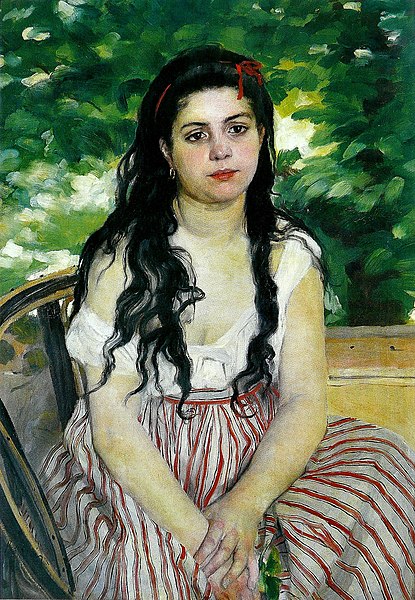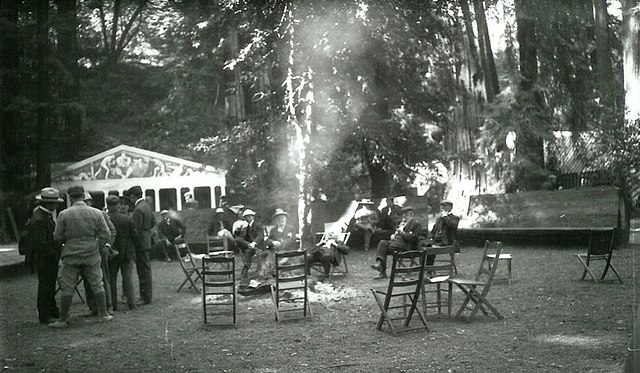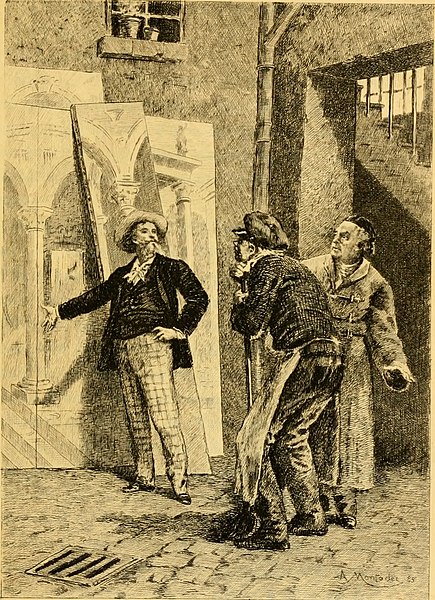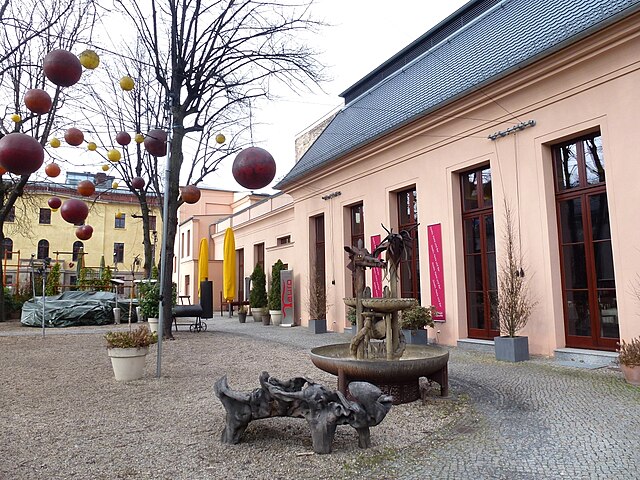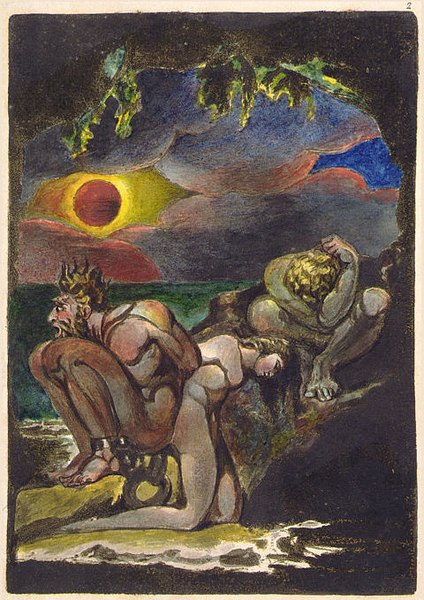Bohemianism is a social and cultural movement that has, at its core, a way of life away from society's conventional norms and expectations. The term originates from the French bohème and spread to the English-speaking world. It was used to describe mid-19th-century non-traditional lifestyles, especially of artists, writers, journalists, musicians, and actors in major European cities.
Pierre-Auguste Renoir, The Bohemian (or Lise the Bohemian), 1868, oil on canvas, Berlin, Germany: Alte Nationalgalerie
Bohemian Grove during the summer Hi-Jinks, circa 1911–1916
An illustration from Henri Murger's 1899 book Bohemian Life.
Former brewery turned artist center in Prenzlauer Berg
Free love is a social movement that accepts all forms of love. The movement's initial goal was to separate the state from sexual and romantic matters such as marriage, birth control, and adultery. It stated that such issues were the concern of the people involved and no one else. The movement began during the 19th century and was advanced by hippies during the 1960s and early 70s.
The Adamites were a sect that rejected marriage. Pictured, they are being rounded up for their supposedly heretical views.
Title page from A Vindication of the Rights of Woman (1792), by Mary Wollstonecraft, an early feminist and proponent of free love.
Frontispiece to William Blake's Visions of the Daughters of Albion (1793), which contains Blake's critique of Christian values of marriage. Oothoon (centre) and Bromion (left) are chained together, as Bromion has raped Oothoon and she now carries his baby. Theotormon (right) and Oothoon are in love, but Theotormon is unable to act, considering her polluted, and ties himself into knots of indecision.
The Oneida Community was a utopian group established in the 1840s, which practiced a form of free love. Postcard of the Oneida Community Mansion House from 1907.

